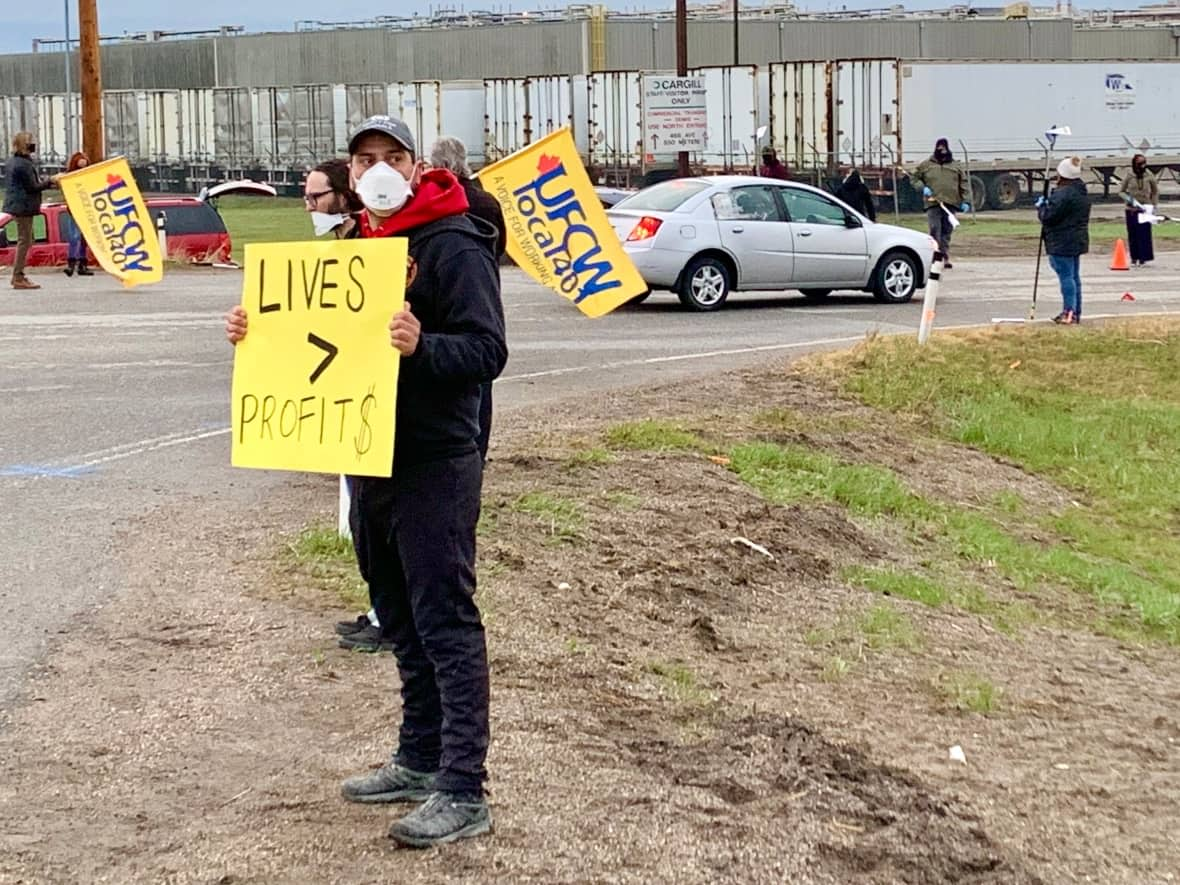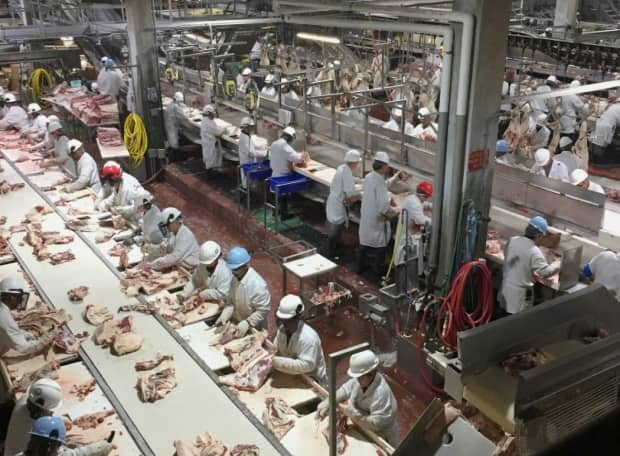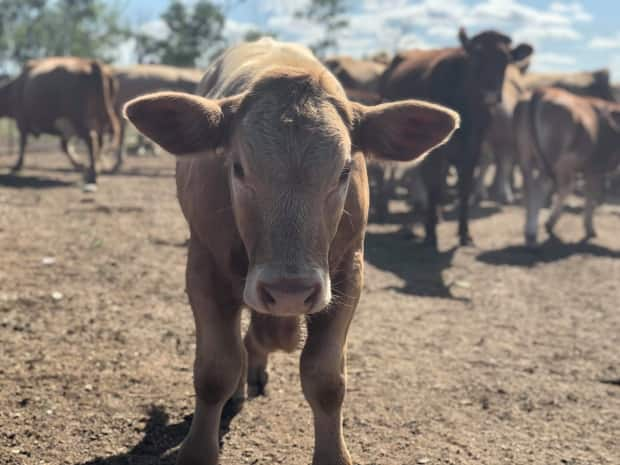Cargill issues lockout notice to staff at one of Canada's largest beef-processing plants

The owner of a southern Alberta plant that processes about a third of Canada's beef says it will lock out employees on Dec. 6, the same day that workers had recently voted to strike on if the company and the union can't reach a deal.
Cargill intends to commence a complete lockout of all staff in the bargaining unit represented by United Food and Commercial Workers Local 401 at its plant near High River as of 12:01 a.m. on Dec. 6, according to a statement from the organization's vice-president of labour relations, Tanya Teeter, obtained and made public Thursday by the union.
A day earlier, the UFCW said employees had rejected the company's contract offer after two days of voting. The union has said workers' biggest concerns revolve around health and safety related to COVID-19 at a plant that was the site of a massive and deadly outbreak in 2020 and another, smaller outbreak in 2021. Workers also want improved benefits, wage increases and quicker movement into new jobs once hired into them, the union says.
The prospect of a processing disruption at the plant has raised concern among Prairie ranchers, who have already been dealing in the past two years with drought, soaring feed costs and pandemic-related disruptions that led to massive cattle backlogs.
"A lockout terminates your union contract and can allow an employer to demand employees return to work under the conditions that the employer desires," UFCW Local 401 president Thomas Hesse said in a statement.
Cargill spokesperson Daniel Sullivan confirmed the lockout notice Thursday, which aligns with the strike notice deadline previously served to the company. He said the company and the union would meet again on Nov. 30.

"Our team in High River is one of the best workforces across Canada, and our proposal reflects their tremendous skill and dedication. Unfortunately, we have yet to reach an agreement," Sullivan wrote in an emailed statement.
"We are willing to keep meeting to avoid any labour disruption which is in no one's best interest during an already challenging time.
"While we navigate this negotiation, we continue to focus on fulfilling food manufacturer, retail and food service customer orders while keeping markets moving for farmers and ranchers. If necessary, we will shift production to other facilities within our broad supply chain footprint to minimize any disruptions."
Employees voted against contract offer
On Wednesday, the union said employees rejected the company's contract offer by a 98 per cent margin after two days of voting.
Earlier, the union delivered a strike notice warning staff would hit the picket line Dec. 6 if the requested changes weren't made.
At that time, the union said although Cargill empoyees expressed their anger and frustration, they remain ready to make a deal.
Last year, the meat-packing plant was the site of a deadly COVID-19 outbreak linked to three deaths and positive tests among an additional 950 workers — nearly half its work force — and hundreds of family and community members. Another outbreak in 2021 resulted in dozens of cases.
Ranchers fear another cattle-processing backlog
Melanie Wowk, a rancher and chair at Alberta Beef Producers, told CBC News in mid-November that the possibility of a strike deeply concerns ranchers.
She said she feared a strike at the Cargill plant would lead to another cattle backlog, pointing to those experienced last year when the pandemic spurred temporary closures of meat processing plants.

The disruption to processing in North America pushed meat prices higher at grocery stores, but had the opposite effect down the supply chain, where a backlog of cattle emerged.


